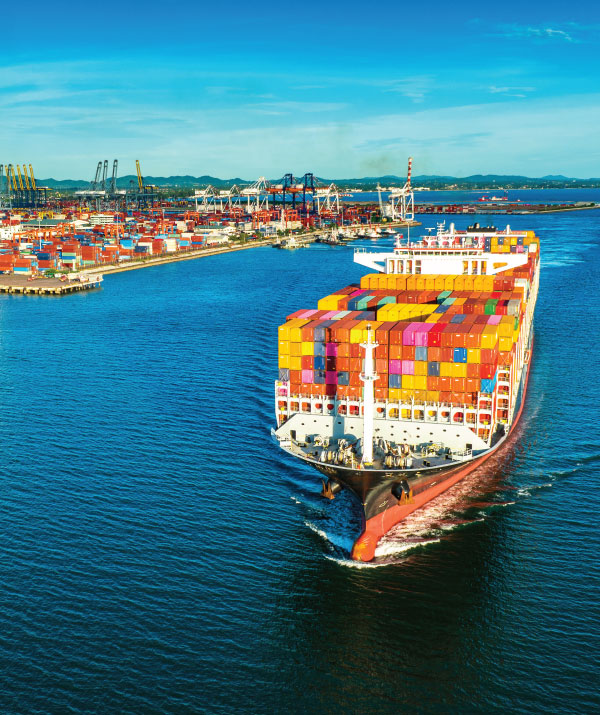

Bermuda Import & Export (BIECO) is a family-owned import business, started in 1949. Graham Fowle, the grandson of the original owner and current company president, gradually expanded company lines, starting with the addition of produce and alcohol. Bermuda Import & Export now has 25 employees and carries produce, seafood, groceries, alcohol, dry and frozen goods, and some dairy and meat. The majority of goods are perishable items. Bermuda is a small market of 21 square miles; the company sells to all available outlets, including restaurants, hotels, resorts, clubs, grocery and convenience stores. There are no consumer retail sales.

In Bermuda, everything is imported – and nothing comes into the island without some type of import fee/cost. BIECO brings in two containers of produce (not including seafood and alcohol) weekly. The containers usually arrive on Sunday night and Monday morning, and produce must be pre-cleared through H.M. Customs – Bermuda (Customs) in time for delivery to restaurants, shops, and hotels early on Monday morning. This requires a deposit to be paid in advance on all pre-cleared items of 1½ times their normal duty rate.
The old system of managing tracking and invoicing of shipments through Customs was time and labor-intensive. It involved a complicated spreadsheet, with manual entry of the details of each individual item. These details included (but were not limited to) vessel information, voyage number, bill of lading, container information, date of arrival, Customs Procedural Codes, tariff numbers, country of origin, purchase order number, wharfage charges (assessed against cargo, vessel’s stores, fuel and supplies for passage on, over, under or through any wharf) and vessel details.
David Potts, the company’s financial controller, says that the process took at least four hours (“if the person knew what he was doing,” he adds, wryly), and was fraught with potential errors. For example, a misplaced decimal point could potentially incur thousands of dollars in extra duty costs prior to being recalculated. Because items have various duty percentages (ranging from five to 22 ¼ percentage), calculations were often rounded up or averaged. If the work was not completed on time, it would delay delivery of containers and cause possible damage to goods.
Finally, getting the Customs deposit (averaging $750) returned could take up to a month – after all the double-checking of calculations and adjustments for manual entry errors.

Everything is fine, it works just wonderfully. We just check the purchase order against the invoice, make sure there are no discrepancies, verify the bill of lading, and the system creates the Customs Declaration Form, the accounting voucher, and the cheque amount. It’s a three to five-minute process, and saves a lot of time.

Learn more about what landed costs are and how to properly manage them.

Because Blue Link set up the entire process at BIECO, all items are treated equally and reporting is streamlined. David is happy: “Everything is fine, it works just wonderfully.” He explains how the software saves time: “We just check the purchase order against the invoice, make sure there are no discrepancies, verify the bill of lading, and the system creates the Customs Declaration Form, the accounting voucher, and the cheque amount. It’s a three to five-minute process, and saves a lot of time.”
Also, staff hours and employee costs are substantially reduced. “We had one person doing this process for the whole company and he retired last year – and we’ve not had to replace him. We’ve been able to split up the work with no extra workload.” Processing the Customs Declaration Forms is now streamlined, as David explains: “We import two containers of produce weekly and checking the line items and different categories are now all set up and the man doing that job just breezes through it. Previously, he would spend about three or four hours; now it takes him 30 minutes – and that’s if he’s slow and takes a coffee break!” The ability to select items by date and group them together also eases the declaration process. Other benefits of the Blue Link application include better reports, analysis, and tracking. For example, instead of the need to go back to inventory and check all items (tariff codes, country of origin, weight, and size), the products are now calculated by cost, which is more accurate. “Just because it’s more expensive doesn’t mean it cost us a lot more to bring it in,” explains David. “This system is accurate to the penny. Better costing of the product means more efficiency, so we can make more profit. That makes us happy!” When asked about the reactions of the Customs department, David simply states: “The sheer fact that Customs haven’t complained… is very good. Says it all!” He adds, “There was a bit of initial tweaking, but it’s all fine now, and there are no complaints at all. We’re ahead of the curve.”